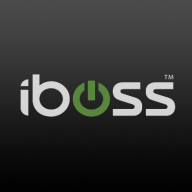


Cisco Umbrella and F5 BIG-IP Access Policy Manager (APM) are leading solutions in network security. Cisco Umbrella takes the upper hand in ease of deployment and cloud-based scalability, while F5 BIG-IP APM excels in advanced access management for complex environments.
Features: Cisco Umbrella offers user-friendly setup, strong DNS-based protection, and comprehensive domain threat intelligence. Its cloud-based design supports easy deployment and scalability. F5 BIG-IP APM provides robust multi-factor authentication, secure remote access, and integration with various authentication protocols, making it ideal for enterprises with intricate access needs.
Room for Improvement: Cisco Umbrella needs better integration with third-party tools, enhanced advanced threat protection, and improved pricing models for SMBs. F5 BIG-IP APM users cite complex setup and high costs as drawbacks, along with needing better cloud service integration and automation features.
Ease of Deployment and Customer Service: Cisco Umbrella's cloud-native design allows straightforward deployment in both cloud-only and hybrid settings, complemented by highly responsive customer support. F5 BIG-IP APM is primarily deployed in on-premises and hybrid setups, requiring more effort due to its extensive features. However, its customer service is often praised for effectiveness and responsiveness.
Pricing and ROI: Cisco Umbrella is viewed as cost-effective within Cisco’s enterprise agreements, delivering good ROI by reducing manual threat management costs. Nonetheless, its pricing outside the US is considered high and complex. F5 BIG-IP APM is seen as expensive but offers high reliability and quality, justifying its cost for organizations requiring detailed access control solutions.
| Product | Market Share (%) |
|---|---|
| Cisco Umbrella | 15.1% |
| iboss | 2.4% |
| F5 BIG-IP Access Policy Manager (APM) | 1.4% |
| Other | 81.1% |

| Company Size | Count |
|---|---|
| Small Business | 6 |
| Midsize Enterprise | 6 |
| Large Enterprise | 5 |
| Company Size | Count |
|---|---|
| Small Business | 49 |
| Midsize Enterprise | 30 |
| Large Enterprise | 51 |
| Company Size | Count |
|---|---|
| Small Business | 9 |
| Midsize Enterprise | 1 |
| Large Enterprise | 9 |
Iboss offers a comprehensive cloud-based security platform valued for its scalability and autonomous features, ensuring robust security with easy deployment and management capabilities.
Renowned for its robust security architecture, Iboss integrates seamlessly within diverse networks, delivering efficient granular filtering and advanced content categorization. Its single pane of glass console provides ease of management, allowing rapid scalability suitable for rapidly deploying environments. Operates in BYOD setups due to inline filtering without device installation. Integration with cloud-based applications enhances user control, and features like SASE, SSL inspection, and ChatGPT risk protection stand as highlights. Despite its strengths, users have pointed out areas for enhancement like direct navigation in reports, SSL decryption, and better cloud integration while having room to improve data loss prevention.
What are the most important features of Iboss?The usage of Iboss spans educational institutions, specifically K-12, to enforce internet policies, protect data, and support remote work environments. It provides web filtering and security frameworks to ensure safe browsing. Its platform-as-a-service model offers flexibility for both cloud-based and on-premises requirements, integrating seamlessly to deliver enhanced security features suitable for various deployment needs including zero trust, CASB, and network security for work-from-home setups.
Cisco Umbrella provides fast-deploying DNS-layer security with powerful threat protection capabilities. Trusted by over 30,000 entities, it ranks highly in DNS security and effectively supports secure remote work environments.
Cisco Umbrella offers comprehensive DNS security, web filtering, and ease of use, enhancing network security through robust threat protection and malware prevention. It processes over 600 billion requests daily, making it a leader in its field. The seamless integration with existing infrastructures and cloud-based nature makes it suitable for remote and distributed work environments, ensuring consistent security throughout. Management is streamlined with a single-pane interface that simplifies administration, while in-depth reporting capabilities provide valuable insights for continuous monitoring.
What are the key features of Cisco Umbrella?Cisco Umbrella is widely adopted in industries requiring advanced DNS-level security to counteract malware, phishing, and cyber threats. Its ability to monitor and protect remote and roaming employees makes it an attractive option for sectors highly dependent on cloud services. By managing DNS queries and blocking harmful sites, Cisco Umbrella enhances cybersecurity across networks, providing an added layer of protection for businesses worldwide.
F5 BIG-IP Access Policy Manager (APM) is an access management proxy solution for managing global access to the enterprise networks, cloud providers, applications, and application programming interfaces (APIs). Through a single management interface, BIG-IP APM consolidates remote, mobile, network, virtual, and web access.
BIG-IP APM can also serve as a bridge between modern and classic authentication and authorization protocols and methods. For applications which are unable to support modern authentication and authorization protocols, like SAML and OAuth with OIDC, but which do support classic authentication methods, BIG-IP APM converts user credentials to the appropriate authentication standard supported by the application.
BIG-IP APM Benefits:
BIG-IP APM Features:
Reviews from Real Users
Below are some reviews and helpful feedback written by BIG-IP APM users.
Mahmmoud Rabie, Senior Site Reliability Engineer, writes that BIG-IP APM is "A highly stable solution for load balancing, but the initial setup is complex."
Clyde Livingston, Senior Process Specialist at Telstra, says that BIG-IP APM is "Easy to use, useful access remotely, but lacking stability."
Chris Lam, Senior Solution Consultant at Macroview Telecom Limited, states that BIG-IP APM is "Useful for remote access VPN and VPI integration with VMware.
We monitor all Secure Web Gateways (SWG) reviews to prevent fraudulent reviews and keep review quality high. We do not post reviews by company employees or direct competitors. We validate each review for authenticity via cross-reference with LinkedIn, and personal follow-up with the reviewer when necessary.